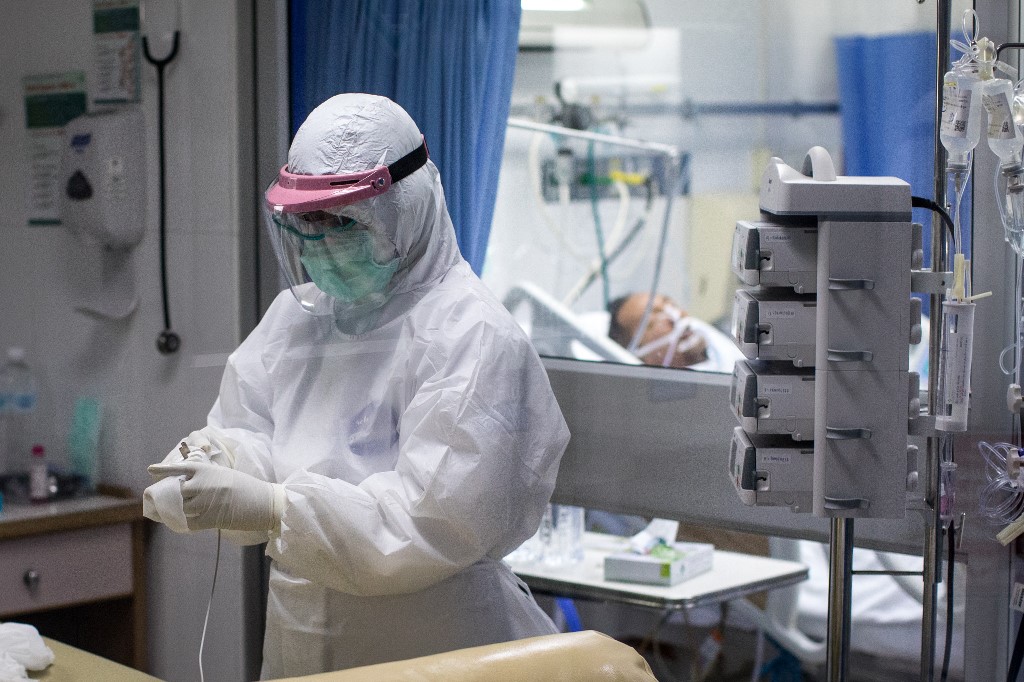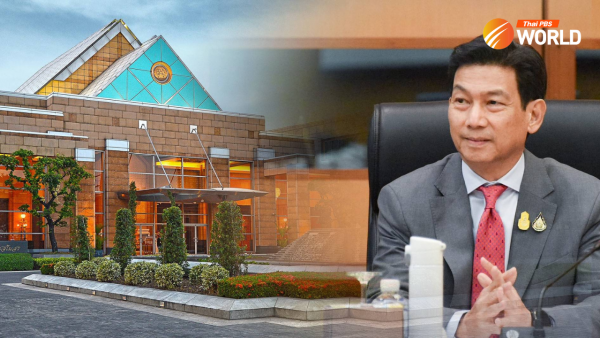2,000 medical graduates to help man hospitals, 471 more hospital beds to be made available

About 2,000 medical science graduates will be mobilized to help in the treatment of COVID-19 patients and over 400 hospital beds will be made available, according to the Centre for COVID-19 Situation Administration (CCSA), as Thailand battles its worst outbreak to date, which has seen 2,000-4,000 new daily infections and dozens of deaths for several consecutive weeks.
3,644 new cases, 44 more deaths and 8 new clusters were recorded today (Friday), raising cumulative infections, since April 1st, 2021, to 207,428.
CCSA Assistant Spokeswoman Dr. Apisamai Srirangsan said that 471 more hospital beds will be added, to accommodate moderate and severe cases in Bangkok, which is critically short of beds for severe cases. The beds will be made available at Bang Khun Thian, Ratchaphiphat and Thonburi hospitals by July 10th.
New clusters in Bangkok include 3 in Bang Khun Thian district (162 infections), 2 in Khlong Sam Wa district (55 infections), construction worker housing in Suan Luang district (198 infections) and 2 in Bang Bon district, at a garment factory and a packaging plant.
More clusters have emerged in Bang Phli district of Samut Prakan, Sam Phran district of Nakhon Pathom, Muang district of Pathum Thani and Bang Pakong district of Chachoengsao province.
Of all the clusters in Bangkok, Dr. Apisamai said there are 25 clusters where new infections are still being reported after 28 days and there are 13 clusters where the disease is still spreading after 14-27 days.
She admitted that the “bubble and seal” measure, which was proved effective in containing the spread in factories in Samut Sakhon, does not work for some factories in Bangkok, where the disease is still spreading after 28 days, because some workers left their restricted zones or changed housing.
Regarding the proposed lockdown measure, she said the Disease Control Department has proposed specific restrictions in high risk areas, areas containing migrant workers and certain high risk activities. She warned, however, that a general lockdown could result in the spread of the disease, citing the case of the Yala madrasa, where many students returned to their home provinces after the lockdown. In case of the provinces, she said that locking down the specific area where there is a high infection rate should suffice.
Complete lockdown of a whole province, for instance, is not the solution in terms of the medical and economic aspects, said Dr. Apisamai. She cited the case of Simummuang market in Pathum Thani, noting that the provincial administration used tight restrictions, including screening of traders and customers and around-the-clock monitoring, which has allowed the market to operate and, at the same time, prevent the spread of the disease.






